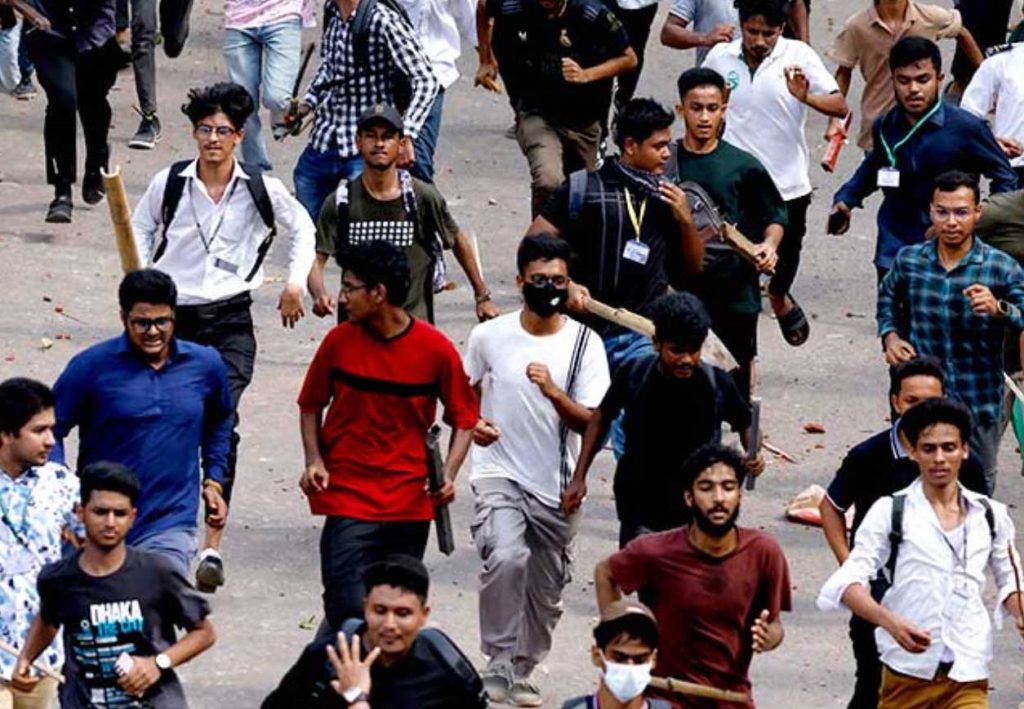Bangladeshi top court sets aside 1% of jobs for third-gender people
Colin Stewart is a 45-year journalism veteran living in Southern…
Fatalities during student rioting set the stage for historic judgment

The Supreme Court of Bangladesh ruled today that 1 percent of government jobs must be set aside for third-gender people and those with physical challenges.
The human rights organization JusticeMakers Bangladesh in France (JMBF) declared that it “heartily welcomes the landmark verdict”.
The decision came after days of nationwide unrest and deadly clashes between police and protesters, resulting in more than 100 reported fatalities. The demonstrations, primarily led by students, were over government job quotas for veterans of the 1971 war of independence and their families, which the court ended up scaling back to 5 percent from 30 percent.
The protests escalated into violence last Tuesday, prompting police to deploy tear gas, rubber bullets, and smoke grenades to disperse stone-throwing protesters from the streets and university campuses.
The ruling shrinks the overall number of reserved jobs to 7 percent from 56 percent, which will allow university graduates to get many more civil service jobs.
According to the Supreme Court’s ruling, 93 percent of government jobs will now be allocated based on a merit-based system. The remaining positions will be distributed:
- 5% for relatives of veterans of the 1971 independence war,
- 1% for third-gender and physically challenged individuals, and
- 1% for ethnic minorities.
Shahanur Islam, JMBF founder and president, said that setting aside jobs for third-gender individuals would help them integrate into society. The decision will gradually ensure the rights of sexual minorities in Bangladesh, he said.
The quota system had been repealed in 2018, but in June was reinstated by a lower court, which sparked the protests.
Shahanur Islam called today’s ruling an “historic judgment that aims to promote inclusivity and equal opportunities within the government workforce.”




